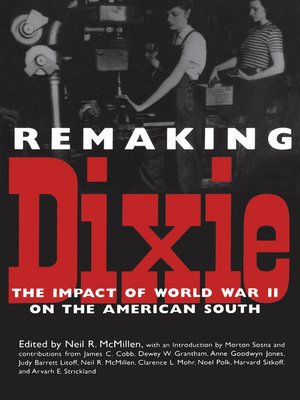
Sign up to save your library
With an OverDrive account, you can save your favorite libraries for at-a-glance information about availability. Find out more about OverDrive accounts.
Find this title in Libby, the library reading app by OverDrive.



Search for a digital library with this title
Title found at these libraries:
| Library Name | Distance |
|---|---|
| Loading... |
Although the Civil War reconfigured Dixie, in the half century since the end of World War II the American South has been massively changed again. It is still an improbable mix of tradition and transition, but the stereotype of a region with one party politics, one crop agriculture, white supremacy, cultural insularity, grinding poverty , somnolent cotton towns, and languorous rural landscapes has largely passed into history. Possum Trot and Tobacco Road have been suburbanized and how have Walmarts. As the regions's boosters insist, the "nations's number0one economic problem" has joined the great, booming sunbelt. For good or for ill, a new sense has been visited upon nearly every southern place.
What elements caused such striking change to the face of Dixie?
In this volume, nine widely known specialists in the history and literature of the American South search for the origins of this sweeping regional transformation in the period of the Second World War. These original essays address a cluster of related problems of enduring fascination for all those who wish to understand the ever-changing, ever-abiding South.
Offering new answers to important questions, they address the Second World War as a major watershed in southern history. Did it drive old Dixie down? Did it set in motion forces that ultimately shaped a Newer South? Did it further Americanize the South by eroding traditional patterns of though and deed that once were fiercely defended by white southerners as "our way of life"? Was the postwar South less different, less peculiar and distinctive?







